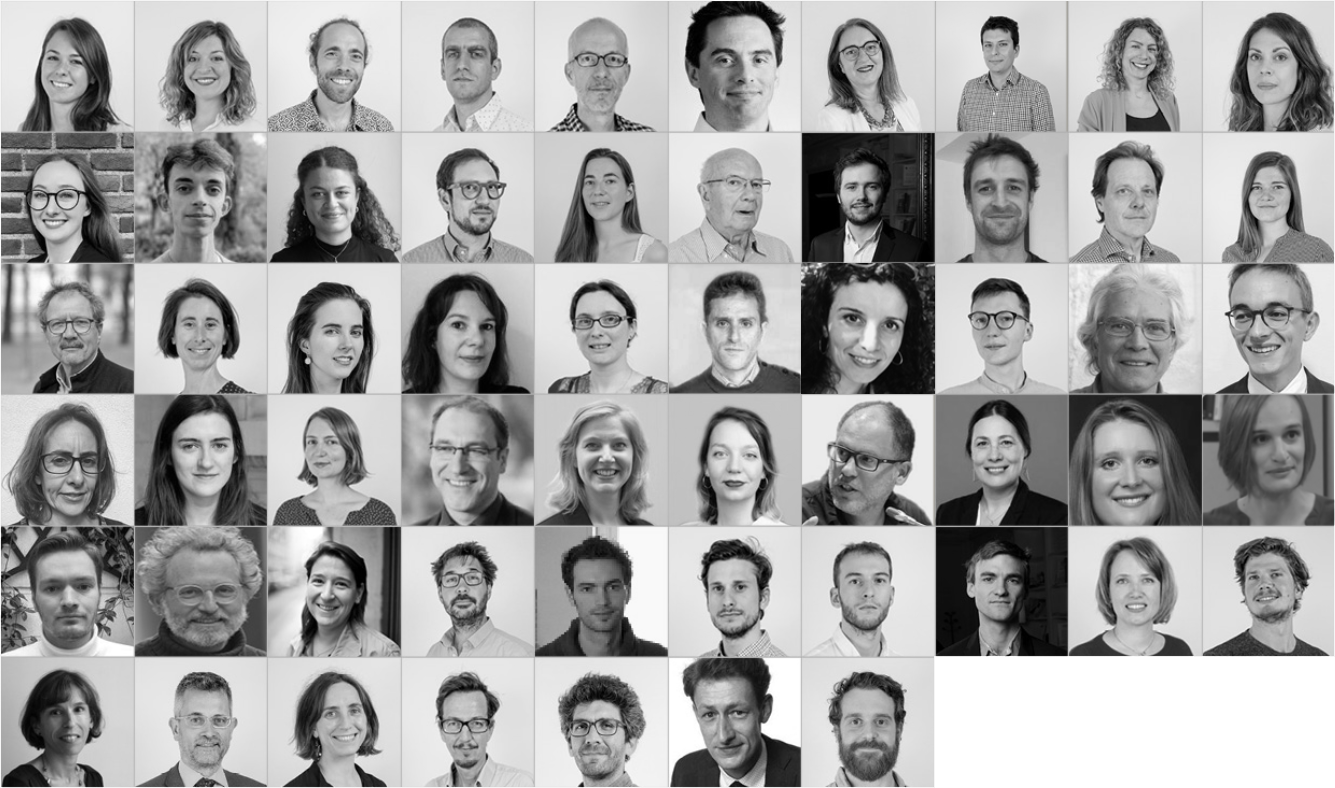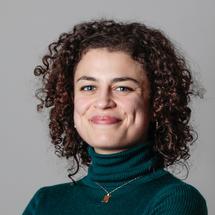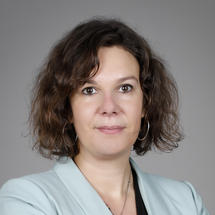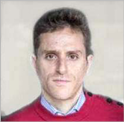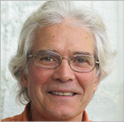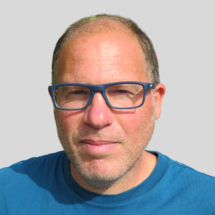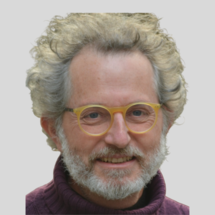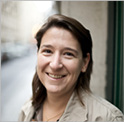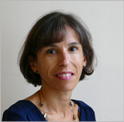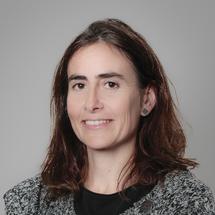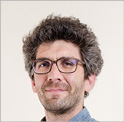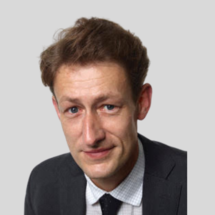FOREWORD
A joint dialogue for the planet, peace and prosperity for all

Global political and economic relations are becoming increasingly polarised into opposing blocs. In addition to armed conflict and geopolitics, the division of income, employment and control in relation to major energy, industrial and food supply chains are being reconfigured by the key trends of digitalization and robotization, but also as a result of commitments to deep decarbonization, which are receiving a boost due to rapidly falling renewable energy costs and various statements of intent to decouple or relocate for reasons of resilience, security and sovereignty, in response to a succession of crises from the pandemic to the Russian invasion of Ukraine.
Furthermore, countries that have not declared themselves in alignment with either side in Russia’s invasion of Ukraine are fearing that these reconfigurations, especially those intentionally made in favour of sustainable development, will relegate them once again to the role of extractive economies, providing only raw materials. To avoid being crushed in the rivalry between the United States, China and Russia, the European Union must play a vital strategic role, but also an economic one, in ensuring that these countries are equal partners, sharing income, employment and decision-making power. This implies the rebuilding of trust that has been severely eroded, particularly by the huge difference between the abundance of financial resources deployed by European countries for their own recovery and the difficulty of mobilizing even the annual €100 billion promised to finance the climate. A real revolution is needed, which has only faintly emerged at the Europe-Africa Summit in February 2022.
IDDRI and its partners in Latin America, Africa and Asia have already been experimenting for several years with forms of dialogue that are based as much on the needs of developing countries as on those of developed countries. In 2021, particular emphasis was placed on strengthening the contribution of these dialogues on a level playing field: parity in the agenda and priorities given to social and environmental issues, and parity in the expression of critical issues that cannot be addressed through more political dialogues without raising tensions. Ensuring that suitable conditions exist for dialogue between peers is a strategic resource and also a structural element in the governance of our planet, our shared prosperity, and for bringing about peace, for at least the next decade.
Sébastien Treyer, executive director
ANNUAL REPORT
COP26 A half-hearted Glasgow
With two years until the Global Stocktake on climate change policy, as provided for in the Paris Agreement, the Glasgow COP, while achieving practical and financial progress, did not strengthen the political pressure that should be generated by this 2023 Global Stocktake. And although the rules for implementing the Paris Agreement are now in place, this COP mainly focused on decarbonization, to the detriment of adaptation and financing issues, while international solidarity remains lacking.
In preparation for this major political meeting, IDDRI has put forward practical proposals:
- Environmental integrity: IDDRI emphasizes the central role of biodiversity in achieving carbon neutrality, the risks, particularly in terms of land use, of large-scale deployment of carbon capture and storage solutions and makes proposals to ensure that climate change mitigation efforts do not come at the expense of biodiversity.
→ At the COP: Leaders made commitments on forests and land use, which was unprecedented in COP decisions - Industry: IDDRI has organized international dialogues on sectoral decarbonization, notably with Indonesia and India, but also between the European Union and South Africa to initiate the decarbonization of steel.
→ At the COP: India and Indonesia made commitments for carbon neutrality by 2070 and 2060, respectively; South Africa’s new climate ambition, backed by support from the private sector that has committed to green industrialization, has facilitated a Just Energy Transition partnership between the European Union, the United Kingdom and the United States, to provide $8.5 billion in funding for South Africa’s transition from coal to a clean energy economy. - Adaptation: the European Commission has launched a collaboration with Adaptation without Borders, a global partnership of which IDDRI is a member, focusing on resilience to future climate risks.
→ At the COP: IDDRI co-organized a launch event in the presence of Frans Timmermans, Vice-President of the European Commission, and Spanish Minister Teresa Ribera, former IDDRI Director. - Long-term strategies: Since 2013, the 40 partners of the DDP initiative have shown that long-term deep decarbonization strategies are a major element of success, to inform short-term policy and investment decisions.
→ At the COP: The Glasgow Pact extended the invitation to countries to submit Long-Term Low Emissions Development Strategies (LT-LEDS) beyond 2020.
STUDY – A country-driven perspective on long-term low-emission development strategies (LT-LEDS) – Implications for a COP26 Decision text or outcome JUNE 2021
BLOG POST – Taking stock of Glasgow’s COP26 16 NOVEMBER 2021
BLOG POST – Building off COP26: Delivering on 1.5ºC and ‘net zero integrity’ through integrated climate and biodiversity action 10 DECEMBER 2021
SCIENTIFIC PUBLICATION – How green primary iron production in South Africa could help global decarbonization JANUARY 2022
PRESS – What is COP26? How the pivotal UN conference could avert global climate ‘catastrophe’ 23/09/21 CNN (USA) with Lola Vallejo
REPLAY – Climate ambition beyond emission numbers: an inside look from countries and sectors 9 SEPTEMBER 2021
REPLAY – Launch of Adaptation Without Borders: A New Era in International Cooperation on Climate Change, with, among others, Frans Timmermans and Teresa Ribera
REPLAY – COP26: What outcomes? 16 NOVEMBER 2021
REPLAY – COP26 : ceux qui avancent, ceux qui freinent 13/11/21 “C DANS L’AIR” with Lola Vallejo [content in French]
COP15 From one postponement to another: staying on track
How can negotiations on biodiversity protection, politically weakened by the pandemic, be brought to a successful conclusion? After numerous postponements due to the Covid-19 crisis, preparatory negotiations within the framework of the United Nations Convention on Biological Diversity have formally resumed, and the final negotiations, announced in Kunming, China, are still scheduled for 2022. Despite these major upheavals in the calendar, IDDRI has continued to collaborate as an independent think tank with Basile van Havre, the co-chair of negotiations.
Working closely with negotiators: to achieve the most ambitious results, IDDRI continues to clarify the key issues in the negotiations and organizes informal dialogues to foster progress. In 2021, IDDRI made proposals on two key elements of the agreement regarding:
- the responsibility and transparency system, which should ensure the follow-up of commitments made by States;
- the consideration of biodiversity issues by other sectoral arenas (agricultural, chemical, etc.), which are responsible for the greatest pressures on biodiversity.
Information: in France, IDDRI is continuing with its objective of sharing information with relevant stakeholders on the progress of negotiations: the 6th and 7th sessions of the Biodiversity Platform have taken place in recent months.
POLICY BRIEF – Five proposals for a strengthened monitoring and review of the post-2020 Biodiversity framework MARCH 2022
REPORT – Strengthening biodiversity mainstreaming in other sectors: options for–and after–CBD COP15 NOVEMBER 2021
WORKSHOP REPORT – Anchoring non-state action within CBD processes: institutional and operational options for the post-2020 framework MARCH 2022
PRESS – Biodiversité : avec sa « déclaration de Kunming », la Chine lance la négociation d’un nouveau cadre mondial, 15/10/21 LE MONDE with Juliette
Landry [content in French]
REPLAY – Biodiversity Platform 5 OCTOBER 2021
REPLAY – Biodiversity Platform: analyzing the international issues on the road to COP15 6 APRIL 2022
PODCAST – COP15 chronicles: can a negotiation save biodiversity? [content in French] 28 APRIL 2022
High Seas Negotiations emerge from the abyss
Negotiations on the high seas resumed in March 2022, with a session of discussions at the United Nations headquarters in New York. The aim remains to achieve an international treaty to protect ocean biodiversity in areas beyond national jurisdiction, an area accounting for two-thirds of the ocean. The high seas are becoming zones of human activity, where competition must be regulated and its impact on the marine environment must be limited. Discussions should be concluded in 2022, with new discussion sessions starting in August. In this UN arena, as is the case for climate and biodiversity, IDDRI works as closely as possible to the discussions.
Priorities for intervention with negotiators:
- provide them with realistic and robust proposals to improve the content of the text, in particular on the process of creating marine protected areas in the high seas, their monitoring and their governance;
- implementation and compliance mechanisms, to ensure effectiveness these mechanisms would benefit from being underpinned by explicit treaty provisions, establishing a dedicated committee. IDDRI has made proposals for a collaborative, transparent and non-confrontational approach, and for a deployment timetable.
Media communications:
- IDDRI remains a unique source of understanding, deciphering and analysis for the French media, with its reach now extending to the European Union press.
BLOG POST – Monitoring, control and surveillance: A key tool for the conservation and the sustainable use of the marine environment 3 JUNE 2021
BLOG POST – High seas negotiations return to New York 3 MARCH 2022
REPORT – Ensuring effective implementation of a high seas biodiversity treaty: Lessons learned and options for an implementation and compliance committee MARCH 2022
PRESS – Les négociations sur la haute mer n’ont pas abouti à un traité de protection, 18/03/22 REPORTERRE with Julien Rochette et Klaudija Cremers [content in French]
REPLAY – ”Towards a better management of Western African marine resources“ 23 NOVEMBER 2021
09/02/22 ARTE – Sébastien Treyer in 28 Minutes Comment protéger les océans ? [content in French]
PODCAST – Protecting the high seas: what, why, and how? 20 APRIL 2022 [content in French]
PODCAST – Protecting the high seas: what to expect from an international treaty? 12 MAY 2022 [content in French]
IDDRI’s 20th anniversary conference
Planetary governance for a sustainable recovery: next generation multilateralism
Despite the Covid crisis that gripped the planet in 2020, and despite geopolitical tensions that are disrupting and even structurally modifying the context of intervention, IDDRI continues to consider the future by trying to anticipate, highlight and to seek out and convince people that a development path is possible that both protects the planet and reduces social inequalities. Is it still possible to sit around a table and address these issues together, on the scale of the five continents? Well, that is exactly what IDDRI has done, as a celebration of our anniversary, by organizing a high-level, three-day international conference in October 2021.
are we ready to move towards a next generation multilateralism?
POST-COVID RECOVERY Making African voices heard
A series of important events (Finance in Common Summit on the role of public development banks, Italian G20, European Union – African Union Summit) are helping to make 2021 a crucial year for the implementation of the global sustainable development agenda. Ensuring that the voices of developing countries are heard is a challenge, due to different and often competing political priorities. IDDRI is pursuing its objective of strengthening the relevance of development policies through synergies between countries in the North and South, to make sustainable recovery a shared priority, by gaining experience from dynamics that have been set in motion, but also from obstacles that have been identified
- Aligning funding with the SDGs: at the second meeting of the Finance in Common Summit, as a contribution to the debate on alignment with the 2030 Agenda and in collaboration with colleagues in the European Think Tanks Group (ETTG), IDDRI has proposed practical solutions for public development banks to integrate the SDGs into their current and future activities and investments.
→ more than 500 PDBs state that they are ready to turn commitments into strong actions towards sustainable transformations in alignment with the SDGs.
- Establishing a shared African – European vision: regarding the EU’s external action (see FPEU chapter below), IDDRI launched the Ukama Platform in 2021, which brings together African and European experts to facilitate the emergence of shared policy expectations on climate, sustainable development, economic transformation and international cooperation.
BLOG POST – How to align national Covid-19 recoveries with the Sustainable Development Goals 16 JUNE 2021
REPORT – Financing the 2030 Agenda: An SDG alignment framework for Public Development Banks OCTOBER 2021
BLOG POST – Supporting developing countries for a global sustainable recovery: lessons from the Italian G20 Presidency 15 OCTOBER 2021
REPORT – Green transformation in Africa-Europe relations: linking energy and adaptation with economic transformation FEBRUARY 2022
BLOG POST – Africa’s transition from a provider to a key actor of the global energy transition 16 FEBRUARY 2022
REPLAY – Infopoint on Public Development Banks and the 2030 Agenda 21 JANUARY 2021
REPLAY – Launching event of the Alliance of Subnational Development Banks in Latin America 6 APRIL 2021
FPEU Supporting the implementation of the European Green Deal
The French Presidency of the European Union Council (FPEU) takes place at a pivotal moment for the Green Deal, halfway through the term of the European Commission and Parliament.
Among the debates that must be organized by the Presidency so that Member States can reach a compromise, the “Fit for 55” legislative package is particularly important. It sets out the implementation of the targeted 55% reduction in greenhouse gas emissions that was adopted by the 27 EU Member States.
IDDRI has proposed ideas at different levels.
- Protecting companies subject to ETS: IDDRI has published a summary for decision-makers in the Green Trade Network (GTN) with proposals for a robust and ambitious Carbon Border Adjustment Mechanism (CBAM).
- Anticipating social consequences: lDDRI has published a study on the redistributive impact on the French population of measures such as lowering taxes on electricity, establishing a carbon price for buildings and road transport, and implementing a “polluter pays” policy on fossil fuels.
- Energy: while hydrogen appears to be part of the solution for decarbonizing the European economy, IDDRI has produced several analyses to better define the possible conditions of use of decarbonized hydrogen, as well as recommendations concerning gas infrastructure.
BLOG POST – French Presidency of the European Union: six crucial months for the Green Deal 13 JANUARY 2022
REPORT – Summary for decision-makers: Four guiding principles for CBAM design and implementation MARCH 2022
STUDY – Fit for 55 package: analysis of the distributional impact on European households of energy pricing in buildings and transport MARCH 2022
STUDY – Hydrogen for climate neutrality: conditions for deployment in France and Europe JANUARY 2022
PRESS – Ines Bouacida: «Il faut que l’hydrogène aille dans les secteurs clés de la neutralité climat» 19/01/22 LIBÉRATION interview with Ines Bouacida [content in French]
PRESS – Transition énergétique : quelle place pour le gaz et le nucléaire ? 21/01/22 AFP via CONNAISSANCES DES ÉNERGIES with Nicolas Berghmans [content in French]
PODCAST Carbon pricing in ten minutes 31 MARCH 2022 [content in French]
PODCAST Hydrogen, the new eldorado or a false lead? 2 JUNE 2022 [content in French]
When we talk about multilateralism, it is the notion of justice this is missing. There is a post-colonial history: solidarity does not mean charity for those who suffer. There is a desperate need for justice"
Adelle Thomas, Director of the Climate Change Adaptation and Resilience Research Centre at the University of the Bahamas
New Generation Multilateralism Conference (IDDRI’s 20th anniversary), October 2021
Ukraine Emergency measures for energy and agriculture
In February, Russia’s invasion of Ukraine had the collateral effect of aggravating the fossil fuel price crisis, the embargo of these fuels being considered by Western countries, and also impacting on the prices of cereals, oilseed and protein crops, such as wheat, maize and sunflower oil. At the same time, a number of actors are viewing the situation as an opportunity to challenge the green commitments that Europe is making through the European Green Deal, on the grounds that an urgent solution could be to increase agricultural production in Europe to feed the world. On the contrary, through new work and by communicating with the media, IDDRI and other actors are taking the lead in demonstrating that short-term solutions will support or even accelerate the transition, rather than act as a hindrance.
- Regarding agriculture: IDDRI supports the EU’s Farm to Fork strategy, which aims to make Europe the global pioneer of a healthy food system that is climate and biodiversity-friendly, and which is also the most likely to strengthen the resilience of the European food system and its contribution to global food balances.
- Regarding energy: the relevance and timeliness of the European decarbonization agenda, which aims for the commitment to climate neutrality by 2050, have been confirmed. IDDRI has shown that a fossil fuel exit strategy requires the EU to play its part in fighting climate change while simultaneously freeing itself from harmful dependencies at times of crisis.
OP-ED – Russia’s war in Ukraine: Why doubling down on the Green Deal is the best strategy 10 MARCH 2022
PRESS – Guerre en Ukraine : « Nous pourrions fournir les pays méditerranéens en céréales si nous réduisions l’élevage » 21/03/22 L’OBS, interview with Pierre-Marie Aubert [content in French]
POLICY BRIEF – Phasing out dependence on Russian natural gas: what strategies for the EU and France? MARCH 2022 [content in French]
BLOG POST – War in Ukraine: time to accelerate the energy transition in Europe 17 MARCH 2022
PRESS – La guerre en Ukraine risque-t-elle de freiner la lutte contre le dérèglement climatique ? 25/03/22 LE MONDE with Lola Vallejo [content in French]
PODCAST – War in Ukraine: how to overcome the energy and food crisis 9 MARCH 2022 [content in French]
RADIO – Le gaz, énergie explosive – Épisode 4 : Transition énergétique : couper les vannes 13 MAY 2022 FRANCE CULTURE – Cultures Monde with Ines Bouacida [content in French]
Agriculture and food Providing robust tools for the transition
The price crisis and, in some countries, even crises in access to food, are being used by detractors to attack the European Green Deal, aiming to take advantage of the situation to avoid implementing increasingly stringent environmental measures.
IDDRI is taking its rightful place in the debate on the future of European agriculture, particularly for the short term, based on the scientific results of its 2018 TYFA scenario for an agro-ecological Europe, which confirms its position as not only credible, but increasingly desirable. A book on this scenario, Demain, une Europe agroécologique, published in September 2021 by Actes Sud, takes us beyond the expert debate on foresight studies.
- Climate and biodiversity: IDDRI has highlighted the issue of carbon farming, which involves paying farmers for carbon capture, by proposing a system that would simultaneously promote climate mitigation and support the other objectives defined by the Farm to Fork and biodiversity strategies.
- Dietary issues: Studies by Lifestyle Change and European Agriculture teams have demonstrated the feasibility of implementing effective environmental labelling of food products. While research on the most vulnerable people in society has shown that defining sustainable diets in ways to include their representations, aspirations and capacities is an issue that must be addressed through public action.
BLOG POST – An agroecological Europe by 2050: a scientific work in progress 8 JULY 2021
BLOG POST – The Farm to Fork strategy: an ambitious and realistic innovation pathway for the European food system 13 OCTOBER 2021
STUDY – Environmental food labelling: revealing visions to build a political compromise OCTOBER 2021
POLICY BRIEF – Design principles of a Carbon Farming Scheme in support of the Farm2Fork & FitFor55 objectives JANUARY 2022
ISSUE BRIEF – Sustainable diets: a new perspective to include the less affluent FEBRUARY 2022
PRESS – Un futur moins carné : les conséquences pour la Ferme France 18/06/21 AGRA PRESS with Pierre-Marie Aubert [content in French]
PRESS – Derrière l’affichage environnemental, une « vision » à préciser 19/11/21 AGRA PRESS with Laura Brimont and Mathieu Saujot [content in French]
REPLAY – A just transition to align the EU food system with the Green Deal: challenges and policy levers for France 26 MAY 2021
REPLAY – Environmental food labelling: what vision for the agricultural transition? 16 NOVEMBER 2021
Biodiversity is obviously primarily an environmental issue, but it is also a matter of social science, international policy and sociology.
Mathias Vicherat, Director Sciences Po
Biodiversity Platform meeting, April 2022
French elections For a more democratic transition
In the final weeks of the French presidential election process, the notion of planning ecological investments came back into the spotlight. IDDRI has provided input on the state of the democratic crisis, explaining the link between these two issues.
- Planning: with its long-standing legitimacy on governance issues, IDDRI has intervened to propose an institutional structure, at the State level, to support the implementation of the ecological transition promised by several presidential candidates. Plans for the 21st century, i.e., decision-making on long-term investments, that must be ecological, is detailed in a Note, the essence of which can be found in Elisabeth Borne’s government.
- Democratization: at the same time, there is a need to include citizens to a greater extent in decision-making, alongside legislative and executive powers, which has led IDDRI to propose a method for renovating representative institutions and renewing democracies that are in crisis, in a back and forth dialogue with other think tanks.
- Support: there is no debate regarding the need to respond to the social emergency caused by the energy price crisis. But IDDRI stresses that, to be effective, these measures must be targeted at the most vulnerable populations and, above all, go hand in hand with a strengthening of climate policies.
- Retrofitting: as support mechanisms for the energy renovation of buildings gain momentum, IDDRI, together with ADEME, has published the results of a two-year coordination project: a platform of experts has proposed priorities for the five-year period. This is one of the most important topics for IDDRI’s visibility in France.
NOTE – Quelle gouvernance de la transition écologique dans le contexte d’un nouveau mandat présidentiel ? APRIL 2022
NOTE – Democratic and ecological crisis: what ambition for reform? APRIL 2022 [content in French]
OP-ED – Crise des prix des énergies : revenir au monde d’avant, ou préparer celui d’après ? 7 FEBRUARY 2022 [content in French]
BLOG POST – Community energy: a strong political will that calls for additional resources 3 FEBRUARY 2022
BLOG POST – What are the priorities for ecological planning in the energy renovation sector in France?, 19 MAY 2022
PRESS – Will Emmanuel Macron finally turn green rhetoric into radical action? 26/04/22 THE NEW STATESMAN (United Kingdom) with Lola Vallejo
PRESS – Climat, énergie, biodiversité : les chantiers prioritaires du quinquennat 30/04/22 LE MONDE with Sébastien Treyer [content in French]
PRESS – Qu’est-ce que la planification écologique ? 22/04/2022 FRANCE CULTURE, Sébastien Treyer [content in French]
KEY FIGURES
weekly newsletter
in our public conferences
international press
45 blog posts
social networks
I can only recommend that you read IDDRI’s many publications, particularly the one that takes stock of COP26, which provided food for thought on my return from Glasgow. In 2021, IDDRI will be twenty years old. The various stakeholders - scientists, public authorities, companies, civil society - that are brought together in its governance bodies contribute to its originality and strength within the think tank landscape. #Proud that EDF one of its founding members.
Carine de Boissezon, Chief Sustainability Officer, EDF
Budget
The 2021 accounts, certified by the auditors and approved by the Foundation’s Board of Directors, were established at 4.8 million euros, including staff secondment costs.
Funding

No Data Found

No Data Found
IDDRI has benefited from the support of its privileged partners who have renewed their annual funding. In addition to the continuation of multi-annual funding, IDDRI has continued to raise funds from a number of financiers as detailed below to implement its programme approved by the Board of Directors. (see the “Financial Partners” section).
(1) including 40% (core funding), of which secondments
Expenditure

No Data Found

No Data Found
IDDRI’s expenditure, including funds paid to partners (i.e. a total budget of 5.7 million euros), is divided between: research and action programmes; communication and support for the implementation of impact strategies (promotion of publications, media relations, web, social networks, etc.); cross-cutting functions including management, structural and operating expenses, as shown in the graph.
The breakdown by category of expenditure shows personnel costs at 60%, 31% are allocated to research partnerships and expertise, and 10% to travel, communication and operating costs.
Governance
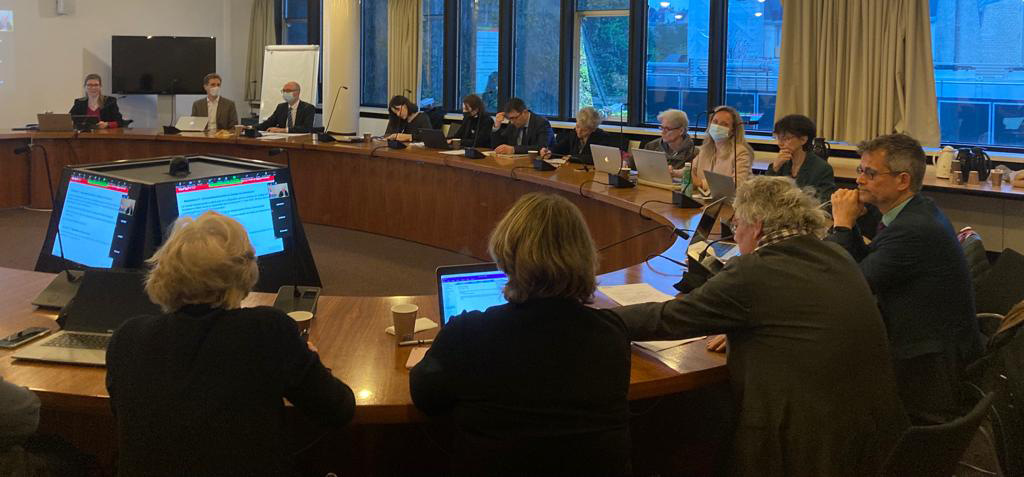
IDDRI’s Board, the decision-making body, is supported by a multidisciplinary Scientific Council, which monitors emerging scientific issues and helps to identify new research topics, and by a strategic Advisory Council, which brings together different stakeholders (representatives of different partner organizations and funding sources) to ensure the relevance of the Institute’s programmes and operating procedures. IDDRI is a public interest foundation. Its Board deliberates under the supervision of a Government Commissioner from the French Ministry of Research appointed by the French Ministry of the Interior who ensures compliance with this statute
Financial partners
IDDRI’s financial model is centrally based on the support of its founding members and long-term partners in the form of core funding and in-kind support, which is a guarantee of our intellectual independence, our relevance and our capacity to anticipate.
Research partners
IDDRI’s research and intervention capacities are based not only on a multidisciplinary team, but also on a large network of scientific partners, expertise and influence in France, Europe and internationally.
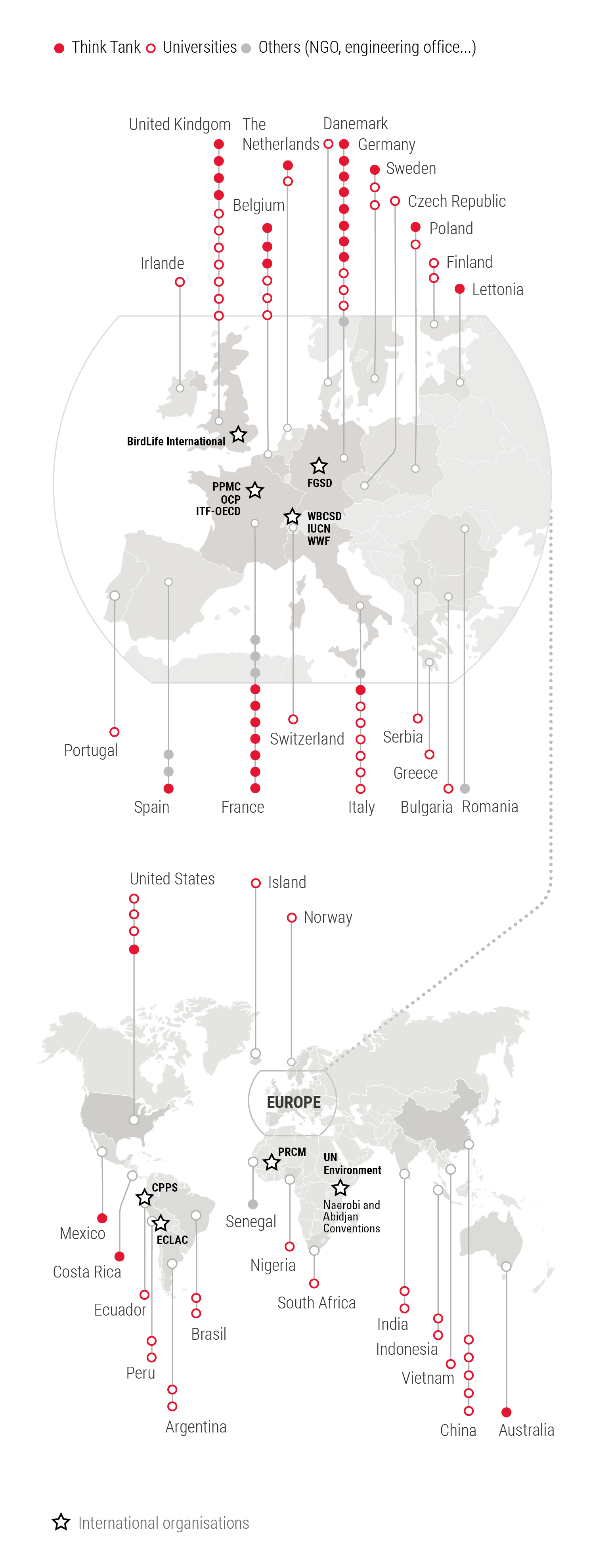
More than 125 scientific partners around the world
CEPAL, Commission économique pour l’Amérique latine et les Caraïbes de l’ONU | CPPS, Commission Permanente du Pacifique Sud de l’ONU | FGSD, Friends of Governance for Sustainable Development, coalition coordonnée par les gouvernements allemand, marocain, nigérian, sud-coréen et roumain | ITF-OCDE, Forum international du transport de l’OCDE | OCP, Ocean and Climate Platform | ONU Environnement, Secrétariat de la Convention d’Abidjan et Secrétariat de la Convention de Nairobi | PPMC, Paris Process on Mobility and Climate | PRCM, Partenariat régional pour la conservation de la zone côtière et marine (Mauritanie, Cap Vert, Sénégal, Gambie, Guinée Bissau, Guinée, Sierra Leone) | UICN, Union internationale pour la conservation de la nature | WBCSD, World Business Council For Sustainable Development | WWF, Fonds mondial pour la nature.
IDDRI Staff
IDDRI researchers teach in numerous Masters programmes, particularly at the School of Public Affairs and the School of International Affairs at Sciences Po. IDDRI has hosted ten interns in 2021-2022.
